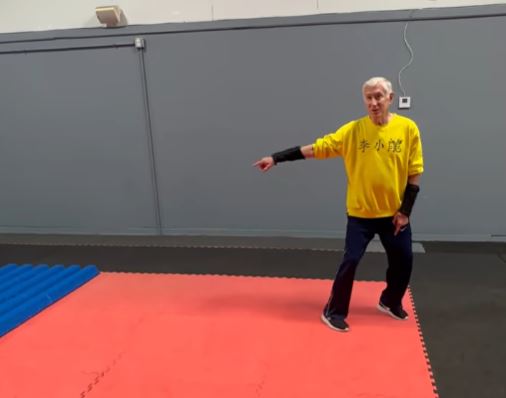A Martial Arts Myth: Point Sparring Robs Your Power in a Real Fight
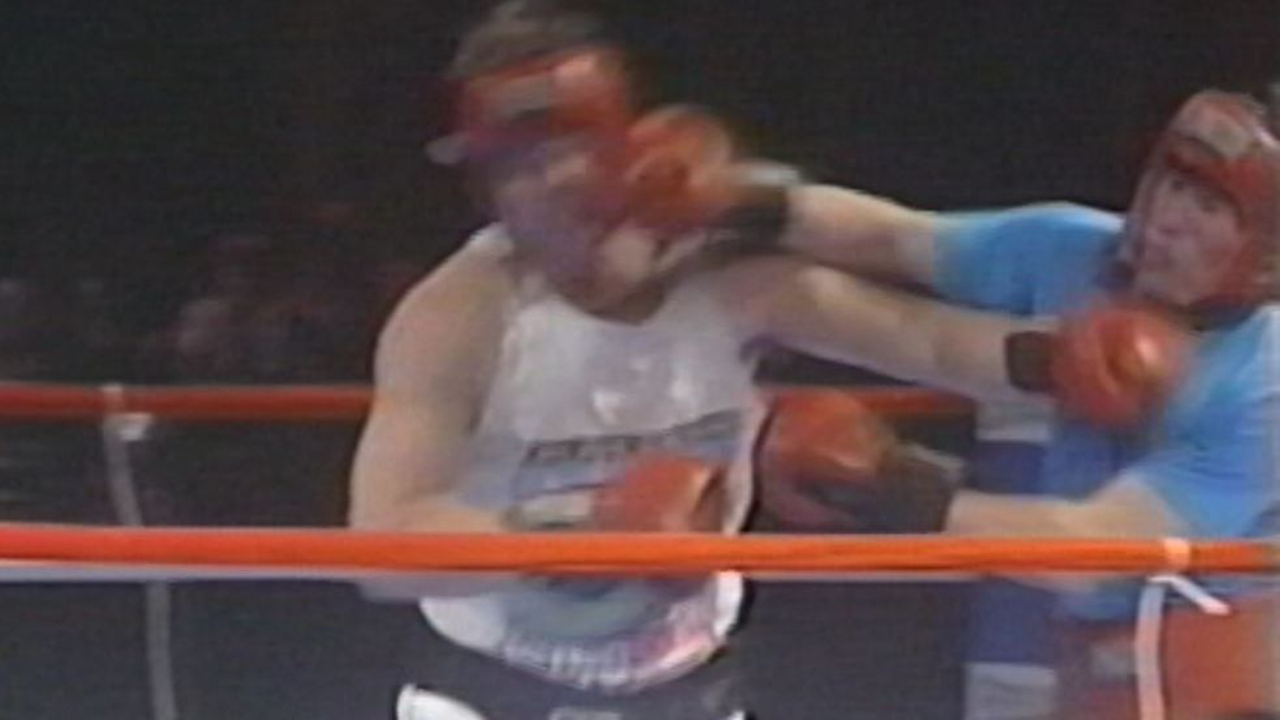
The photo above shows me punching my opponent in my only full-contact match.
In my opinion, a highly-skilled martial artist should be able to apply the right amount of force when needed, but in some situations, you should be able to apply no force at all. Being able to do both requires skill.
There is currently a real "tough guy" attitude in martial arts, especially online. Here is one argument they make: If you spend a lot of time point-sparring, you won't be able to apply force when you need it in a self-defense situation. Instead, you will pull your punches.
I call malarkey, and I know it's malarkey because of my personal experience.
Skill Development and Control
Pulling punches and using light contact in sparring teaches fine motor control and precision. This enables you to "choose" between delivering light or heavy contact, depending on the situation, which is crucial in real-life self-defense to avoid unnecessary harm or legal consequences. It is also important to be able t...
Internal Fighting Arts Podcast Is Recognized as Number One Tai Chi Podcast

I was very honored to see that according to Feedspot, my podcast is at the top of the Top 15 Tai Chi Podcasts to Listen to in 2025. What an honor.
The podcast is 10 years old, and I plan to continue it for the next ten years.
I talk with English-speaking internal arts instructors (Taiji, Xingyi, Bagua, and Qigong) who have ties to well-known masters, and I talk philosophy with Taoist priests and Zen Buddhists.
If you haven't heard it (or haven't heard it lately) I hope you'll check it out at the link below and browse through the 77 editions I have done so far. I am always inspired by my guests, and I believe you will be inspired, too.
https://internalfightingarts.libsyn.com/
21 Years Ago Inside Kung-Fu Ran $5,000 Chi Challenge - Still No Takers
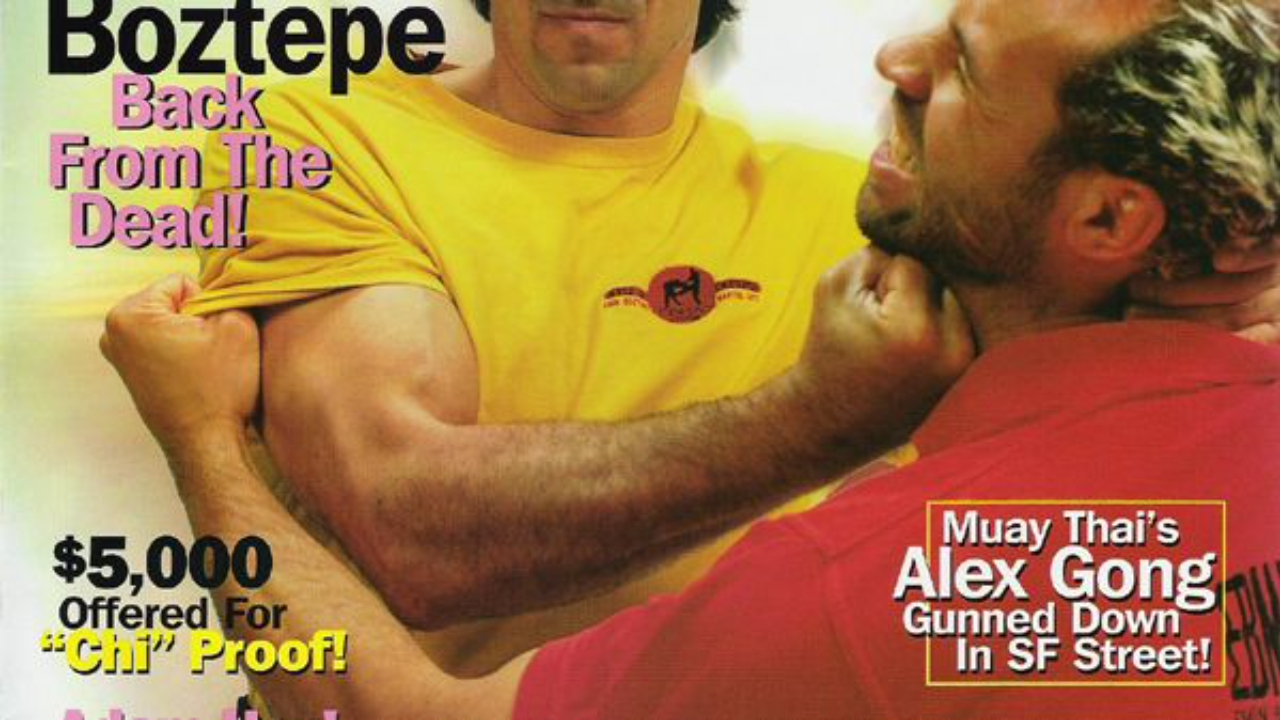
In the November, 2003 edition of Inside Kung-Fu magazine, my challenge to so-called "chi masters" was published -- 21 years ago.
That's when I began offering $5,000 to any chi "master" who could knock me down without touching me.
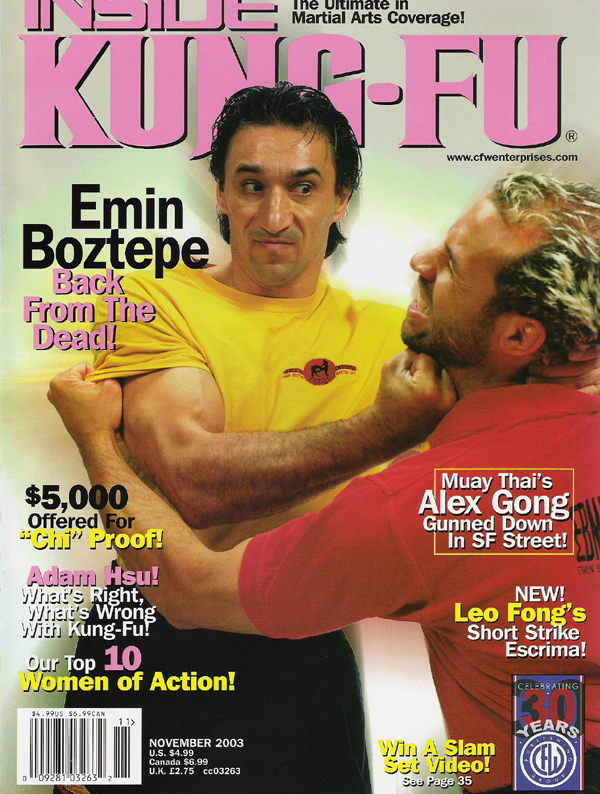
The challenge was triggered by an article in the August, 2003 issue showing an alleged Tai Chi "master" knocking his student down without touching him. The headline on the magazine's cover said: "No-Touch Chi Force: Is it For Real?" And, of course, the article, written by a student of the "master," said yes, it is real.
The teacher was Henry Wang, and the article was written by his student Peter Uhlmann, a psychiatrist from British Columbia. The article describes how Henry Wang learned over time how to "interrupt" the chi of an attacker. Some of Wang's students quit over this nonsense. I consider them the students with integrity.
Here are three photos from the Inside Kung-Fu article showing Henry Wang knocking down his student.
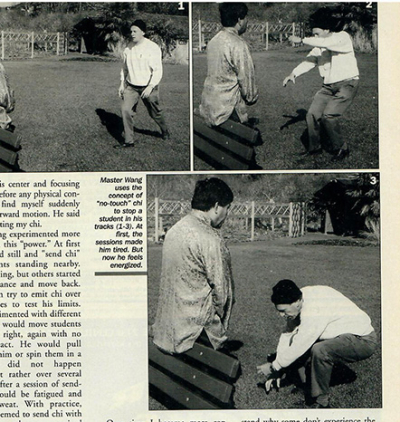
Here is the letter I ...
Why Some Tai Chi Folks Lose Their Balance Immediately
I see it all the time. Some Tai Chi person, often someone who is called a "master," begins their form and loses their balance at the very beginning of the form.
As you know, Tai Chi is all about maintaining your mental and physical balance at all times.
We practice the movements and the intricate body mechanics to learn how to maintain our balance and our "center."
Watch this video and, if you do Tai Chi, check yourself in a mirror or on video to see if you have kinky hips at the beginning of the form.
This is the kind of lesson you learn on this website when you become a member. These seemingly small details help you create the ability to have a stronger root and to develop the relaxed power that makes Tai Chi Chuan a strong martial art.
--by Ken Gullette
It's Easy To Close Your Mind Off to a Better Way of Martial Arts
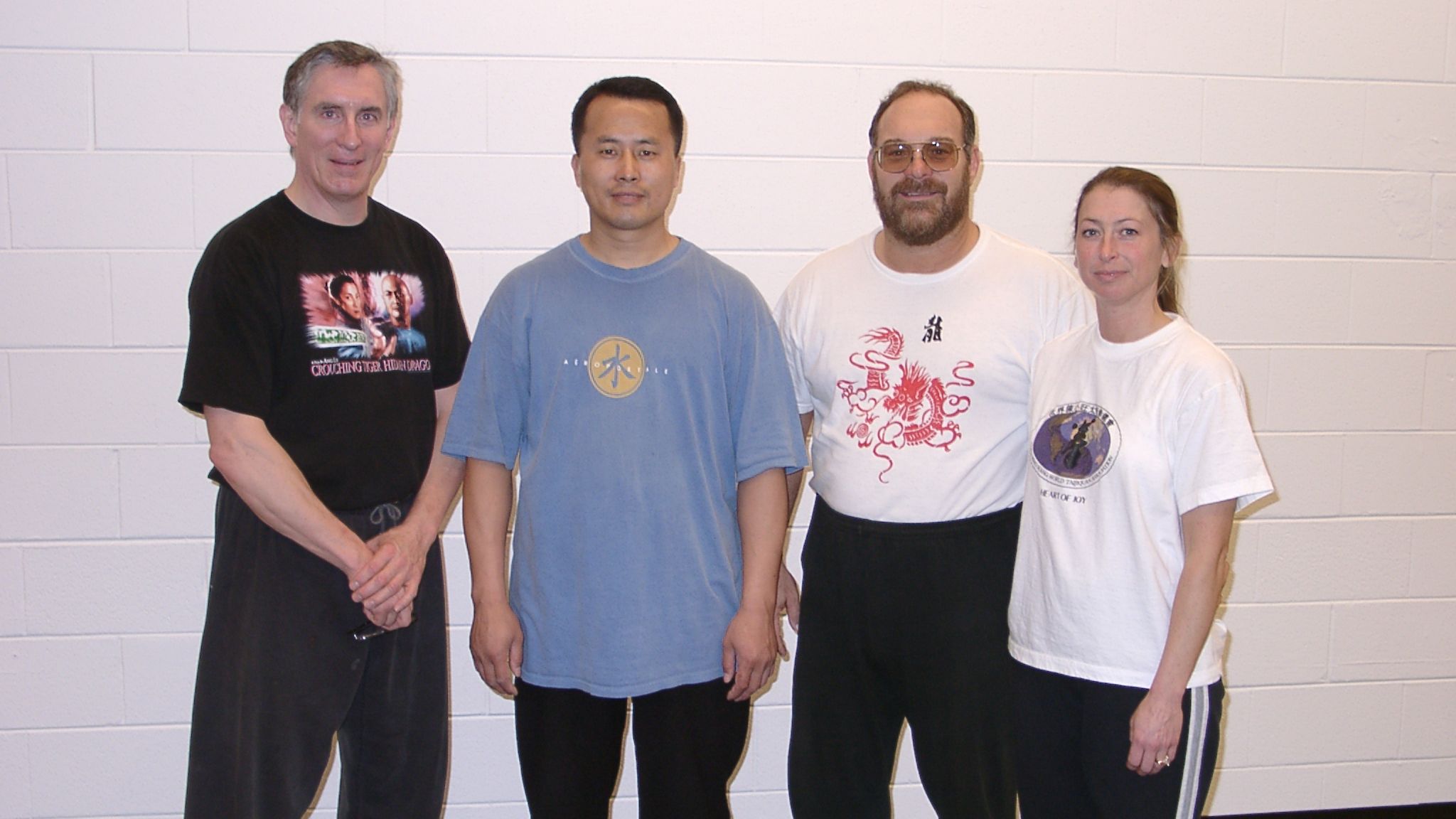
Stop the Exaggeration - Nobody Knocked Anyone Ten Feet Through the Air
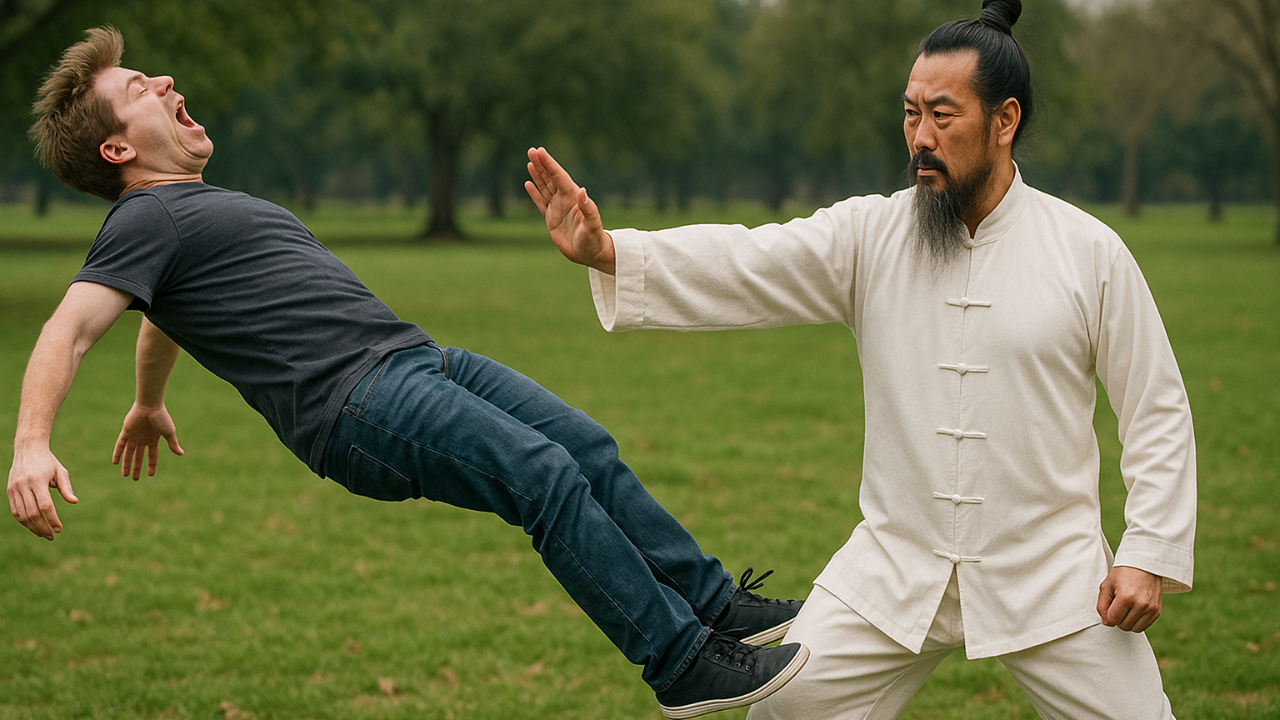
I've always been an advocate of an important concept in the internal Chinese martial arts. That concept is simple:
Keep it real.
The first thing you might think of are the fraudulent claims about "qi powers" that some teachers claim to possess. That actually is a bunch of malarkey, but I'm talking about a different issue this time.
I've read it in books. I've heard it said in podcasts. I heard someone say it again just today when I listened to a podcast. You've probably read it or heard it, too. It goes something like this:
"This master (insert the name here) did push hands with a student (or hit the student) and sent him flying back THROUGH THE AIR TEN FEET!"
I have a simple answer for this claim: "No, he didn't."
We need to stop saying it. Why should we stop? Because it isn't true.
We tend to exaggerate. But our martial arts are pretty good. We don't need to exaggerate to make our art, our teacher, or ourselves look good.
From the edge of the red (by my left foot) to the ...
Why Do You Study the Internal Arts -- Peeling the Layers of the Onion

When I teach, I try to give a lot of detail, especially about the body mechanics that make the internal arts so powerful. Sometimes, however, it's not good to overwhelm students who are just learning a form. We all occasionally need to take it one layer at a time when it comes to complexity.
I spent many years studying Taiji, Xingyi and Bagua without being taught some crucial details. The reason I wasn't taught it? Because my teacher didn't know the details. A lot of times, we think our teachers are masters because they say they are. Especially before the internet, there was no real way to know for sure. We just took a teacher at his word. That's not enough anymore.
The truth is, the internal arts can be as simple or as complex as you want them. If you want to do them for health and fitness, you can just learn the choreography and that might be enough for you.
I try to start every student's learning with the six key body mechanics that I identified after studying Yang style for more...
Are You a Failure at Martial Arts?
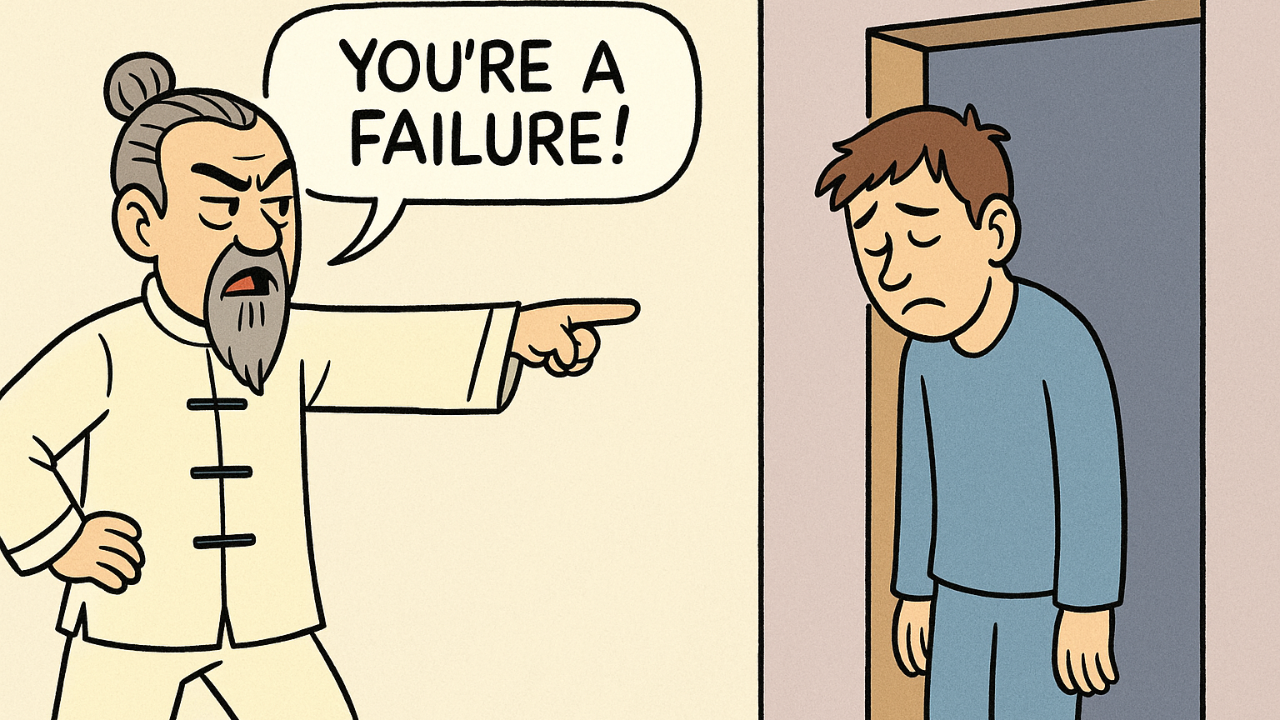
I received an email from one of my online members who said he hasn't been practicing much lately because of a busy work schedule.
He felt like a failure as a martial artist.
The truth is, you should never feel like a failure at martial arts. Sometimes, life, work, family, and other important activities can get in the way of a regular practice schedule. It happens to all of us occasionally. It's okay.
I don't know why you got into martial arts, but I got into it for three reasons:
Reason 1 -- I wanted to learn how to fight more effectively, like Bruce Lee and Kwai Chang Caine.
Reason 2 -- I kung-fu is cool.
Reason 3 -- To impress women. Of course, this is why some of us guys do anything.
I might be in my 70s now, but I still like to impress Nancy. That's why every now and then, I whip out my broadsword.
As Joe Biden would say, here's the deal. Don't get suckered by the tough keyboard warriors online who pretend you're not worthy if you aren't ready to enter an MMA ring. That i...
A Lack of Motivation to Practice Martial Arts and a Paradigm Shift
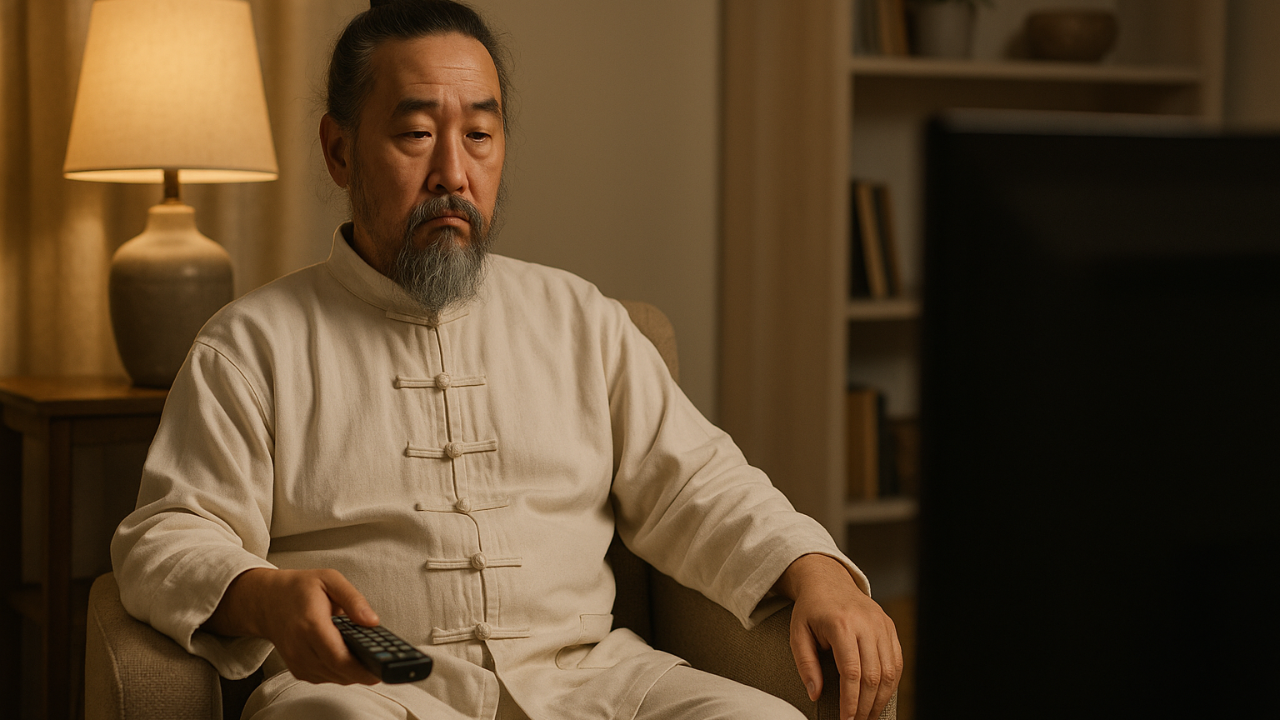
One of my online members asked a question in an email last night. He asked how I would respond to a student (himself) who found it difficult to motivate himself to practice.
I smiled when I read it, because I can't count the number of people who swore they would be my best student but dropped out quickly when they realized how difficult it is to learn martial arts.
I replied, "I would tell him that even 10 or 15 minutes a day can help you move forward. But what teachers THINK is that it's a lot easier to think about being a martial artist than it is to actually do the work to develop skill."
He thanked me for my fast reply, but I realized he had bought his first DVDs from me in 2016. So I replied back and asked him how I could help him.
What he told me next caused a real shift in perspective.
He told me he was so far along in kidney failure that he found it difficult to practice. He also let me know that he has diabetic neuropathy in his feet, making him unable to feel the floor....
Are You Leaking Energy in Your Tai Chi Movement and Breaking Structure
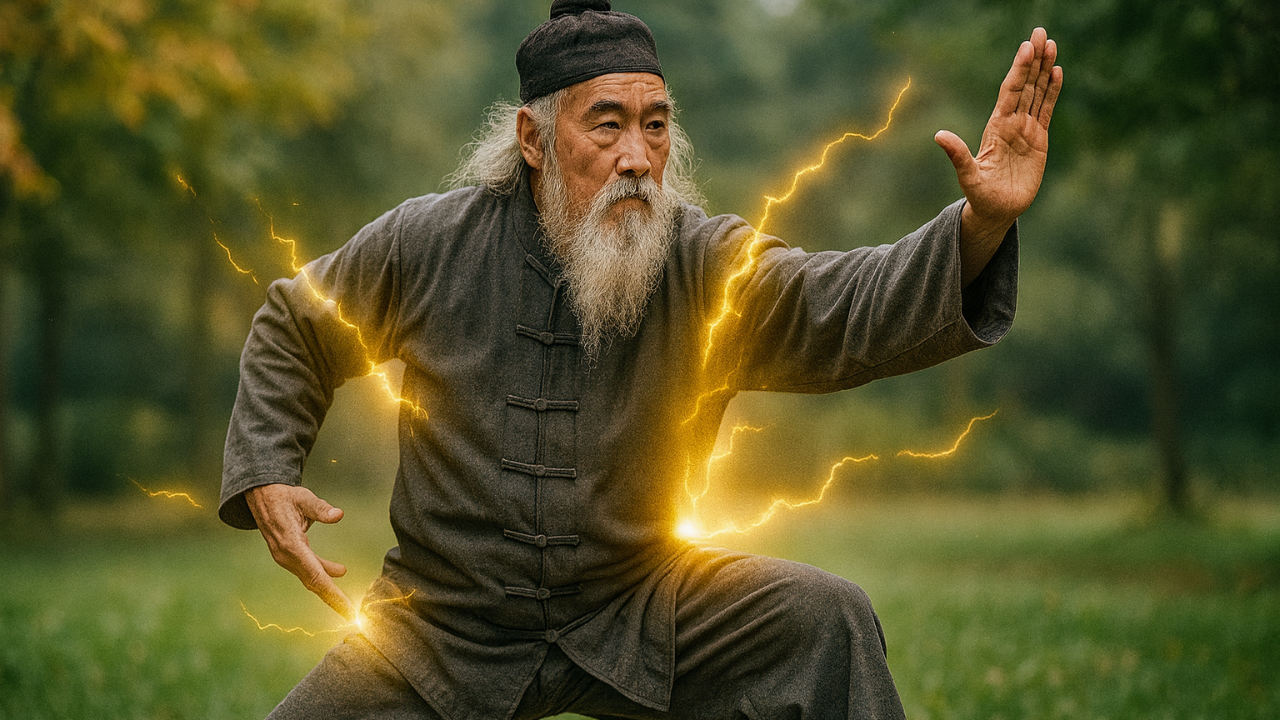
In my live online Taiji classes this week, I focused on the first two or three movements of the Laojia Yilu form and focused on what it takes to avoid "leaking energy."
You can leak energy throughout the form. When you step, or when you shift your weight, it's very common to see even people who call themselves "master" leaking energy and going "outside the frame."
When you leak energy during your movement, you have a break in your structure, and you put yourself in a vulnerable position, making it easier for an opponent to control your center.
Let's look at the very first movement in a form -- the Opening movement when you start with feet together, then you relax, sink, and step your left foot to the right. Then you shift your weight to the center before your hands rise.
Here is a Taiji instructor who will remain unidentified (this is about principle, not shaming). There are many instructors I could have chosen. In Image 1, he is preparing to step out. Notice the angle of his right...
